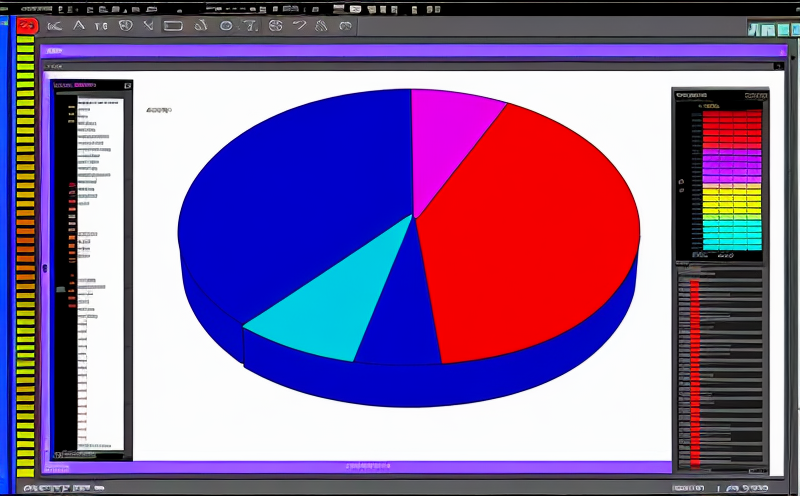BS EN ISO 6721 Dynamic Mechanical Thermal Analysis
The BS EN ISO 6721 standard provides a framework for conducting dynamic mechanical thermal analysis (DMTA). This method measures the relationship between the deformation and stress of materials as a function of temperature, frequency, and strain. It is widely used in polymer science, material engineering, and quality assurance to assess the rheological properties of polymers, elastomers, and other viscoelastic materials.
The DMTA technique provides valuable information about the transition temperatures (glass transition temperature \(T_g\), melting point \(T_m\)) and viscoelastic behavior under various conditions. This data is crucial for understanding how materials will perform in different environments. The test involves subjecting a sample to controlled heating or cooling while applying cyclic mechanical loading.
Using this method, we can determine the storage modulus (\(E'\)), loss modulus (\(E''\)), and damping factor (\(\tan \delta\)) as functions of temperature and frequency. These parameters are essential for predicting the performance of materials under dynamic conditions such as those encountered in manufacturing processes or end-use applications.
Our service adheres strictly to BS EN ISO 6721, ensuring accurate and reproducible results. The process begins with meticulous sample preparation, including cleaning and conditioning to remove any contaminants that could affect test accuracy. Specimens are then mounted on the DMTA equipment for testing.
| Parameter | Description |
|---|---|
| Storage Modulus (\(E'\)) | The component of the modulus that is stored in the material and returns to its original state. |
| Loss Modulus (\(E''\)) | The component of the modulus that is dissipated as heat. |
| Damping Factor (\(\tan \delta\)) | A measure of the material's loss tangent, indicating how much energy is lost during deformation. |
Once testing is complete, our laboratory generates comprehensive reports that include all measured parameters and their corresponding temperatures. These reports are invaluable for quality control, research and development, and compliance with international standards.
- Quality Assurance: Ensure consistent product performance across batches.
- R&D: Develop new materials or improve existing ones by understanding their behavior under various conditions.
- Compliance: Meet regulatory requirements for viscoelastic materials used in medical devices, automotive components, and construction materials.
By adhering to the BS EN ISO 6721 standard, our service ensures that your test results are accurate, reliable, and internationally comparable. This is particularly important when working with international clients or collaborating on global projects.
Industry Applications
| Application | Description |
|---|---|
| Polymers and Elastomers: | Assessing the thermal stability, glass transition temperature, and viscoelastic behavior of these materials. |
| Polyurethane Foams: | Evaluating the curing process and identifying optimal processing temperatures. |
| Adhesives and Sealants: | Determining the appropriate temperature ranges for application and curing. |
| Coatings: | Understanding the adhesion properties under various environmental conditions. |
The BS EN ISO 6721 DMTA test is essential in these industries because it provides insights into how materials behave at different temperatures and frequencies. This information is critical for ensuring product quality, optimizing manufacturing processes, and meeting regulatory requirements.
Eurolab Advantages
Our laboratory offers several advantages when conducting BS EN ISO 6721 DMTA tests:
- Accreditation: We are accredited to perform this test according to the relevant international standards.
- Expertise: Our team of scientists and engineers has extensive experience in thermal analysis techniques.
- Equipment: We use state-of-the-art DMTA equipment that ensures precise measurements and reproducible results.
- Compliance: All our tests are performed in compliance with BS EN ISO 6721, ensuring accurate and internationally comparable data.
Our commitment to quality is reflected in the meticulous attention we give to sample preparation, environmental conditions during testing, and rigorous calibration of equipment. This ensures that your test results are reliable and can be trusted for critical decision-making processes.
Use Cases and Application Examples
| Case Study | Description |
|---|---|
| Automotive Rubber Components: | Evaluating the curing process of rubber components to ensure they meet performance standards. |
| Medical Device Elastomers: | Determining the optimal temperature range for sterilization without compromising material integrity. |
| Polyurethane Adhesives: | Assessing the adhesion properties under various environmental conditions to ensure product longevity. |
- Elastomer Curing: In one case study, a customer was developing a new elastomeric component for automotive applications. The DMTA test helped them identify the optimal curing temperature that minimized warping and maximized mechanical strength.
- Medical Device Sterilization: Another example involved a medical device manufacturer who needed to determine the highest sterilization temperature without causing thermal degradation of their elastomeric components. The BS EN ISO 6721 DMTA test provided critical data that allowed them to set appropriate sterilization parameters.
In each case, our service helped clients make informed decisions by providing accurate and reliable data on the viscoelastic properties of materials under various conditions.





